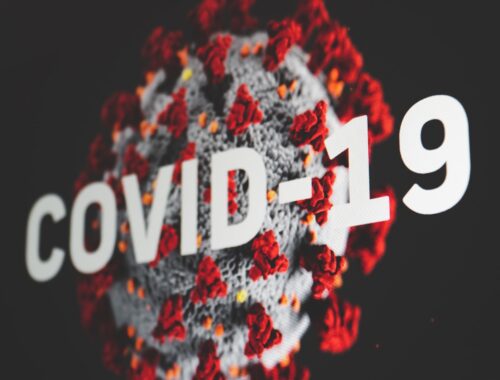Feeding Strategies for Healthy Poultry: Nurturing Our Feathered Friends to Perfection!
Gaya Makanan untuk Ternak Ayam yang Sihat: Menyayangi Sahabat Berbulu Kita Hingga Sempurna!
As proud poultry owners, we strive to provide the best care and nutrition for our beloved feathered companions. A well-balanced diet is essential for their overall health, growth, and productivity. By understanding the proper feeding strategies, we can ensure that our poultry flock thrives. In this article, we will explore effective ways to nourish our feathered friends and share valuable tips on maximizing their well-being.
Introduction: Nurturing Our Poultry for Optimal Health
Feeding poultry is both an art and a science. Just like humans, chickens and other poultry species require a varied diet to maintain good health. A balanced and nutritionally rich menu aids in optimal growth, strong immune systems, and sustained productivity. By adopting the right feeding strategies, we can support our poultry’s physical well-being and improve their overall quality of life.
The Importance of a Balanced Diet
A balanced diet encompassing proteins, carbohydrates, fats, vitamins, minerals, and water is crucial for our poultry’s vitality. Proteins, derived from sources such as soybean meal and fishmeal, support muscle development, feather regeneration, and egg production. Incorporating carbohydrates like corn and wheat provides energy, while fats sourced from fish oil and poultry fat offer essential fatty acids and fat-soluble vitamins.
Vitamins and minerals contribute to various physiological functions, and their deficiency can lead to health issues. Including fresh greens, fruits, and vegetables, such as spinach and carrots, boosts nutritional content. Moreover, ensuring a constant supply of clean, freshwater is essential for hydration, digestion, and regulating body temperature.
The Power of Nutritional Supplements
Nutritional supplements play a vital role in enhancing poultry health. Vitamins, minerals, probiotics, and prebiotics aid in digestion, strengthen the immune system, and improve overall performance. Adding these supplements to their diets can effectively promote growth and prevent certain diseases, such as vitamin deficiencies and gut imbalances. Always consult with a veterinarian to determine the specific dietary requirements of your poultry flock and integrate suitable supplements.
Feeding Strategies for Optimal Health
-
Age-specific Diets: Poultry have diverse nutritional needs at different stages of life. Starter feeds are formulated to provide the necessary nutrients for chicks, while grower and layer feeds cater to adolescent and mature birds, respectively. Adapting dietary choices based on age ensures proper growth, immune development, and egg production.
-
Free-Range Grazing: Allowing poultry to free-range not only encourages natural foraging behavior but also offers access to a variety of insects, grasses, and weeds. A balance between natural grazing and formulated feed creates a well-rounded and healthier diet for our feathered friends.
-
Feeding Techniques: Employing feeding techniques can help manage consumption and waste. Automated feeders or timed feedings help prevent overeating and reduce costs. Pelletized feeds minimize waste, as they are less prone to be scattered or selectively eaten.
-
Hygiene and Cleanliness: Maintaining a clean feeding environment is crucial for preventing contamination and the spread of diseases. Regularly clean feeders, waterers, and coop areas to avoid bacterial growth and ensure optimal health for our feathered friends.
-
Monitoring Feed Intake: Observing feed consumption patterns can provide valuable insights into poultry health. Sudden changes in appetite or feed refusal may indicate underlying health issues. Regularly monitoring feed intake allows for prompt intervention and early detection of potential problems.
Conclusion: Nutritional Well-being for Our Poultry Friends
Ensuring a balanced diet and implementing effective feeding strategies are key to keeping our poultry healthy and vibrant. By nourishing them with the right nutrients, providing access to natural grazing, and incorporating nutritional supplements, we empower our feathered friends to lead fulfilling lives.
Remember, as responsible poultry owners, we have a duty to provide the utmost care and attention to our flocks. By prioritizing their nutritional well-being, we enable our poultry to flourish, laying the foundation for a successful and rewarding journey together.
Frequently Asked Questions (FAQ)
-
How often should I feed my poultry?
It is recommended to provide poultry with access to feed throughout the day. However, monitoring their consumption and adjusting feeding schedules accordingly is crucial to prevent overeating. -
Can I feed my chickens human food leftovers?
While some human food leftovers may be suitable for chickens, it’s important to ensure that they are safe and free from excessive salt, seasoning, or potential toxins. Feeding them small amounts of safe and healthy leftovers can be a welcome addition to their diet. -
Are organic feeds better for my poultry?
Organic feeds can be a good choice for those seeking to avoid synthetic additives, pesticides, or genetically modified organisms (GMOs). However, the suitability of organic feeds varies depending on factors such as cost, availability, and specific dietary needs. -
Can I give my chickens supplements designed for humans?
It is generally not recommended to provide chickens with supplements designed for humans. Poultry have distinct nutritional requirements, and improper supplementation may lead to imbalances or adverse effects. Always consult with a veterinarian for appropriate poultry-specific supplements. -
How can I encourage natural foraging in my chickens?
Creating a suitable free-range environment with access to grassy areas, bugs, and plants is an excellent way to promote natural foraging behavior. Additionally, incorporating foraging toys or scattering treats can stimulate their instinctual feeding habits.
Terima kasih kerana membaca! (Thank you for reading!)
You May Also Like

How Industrial PCs Can Improve Business Efficiency and Productivity
May 10, 2023
Top-Up with a Tap: Mobile Reload Made Easy in Malaysia!
March 15, 2023

